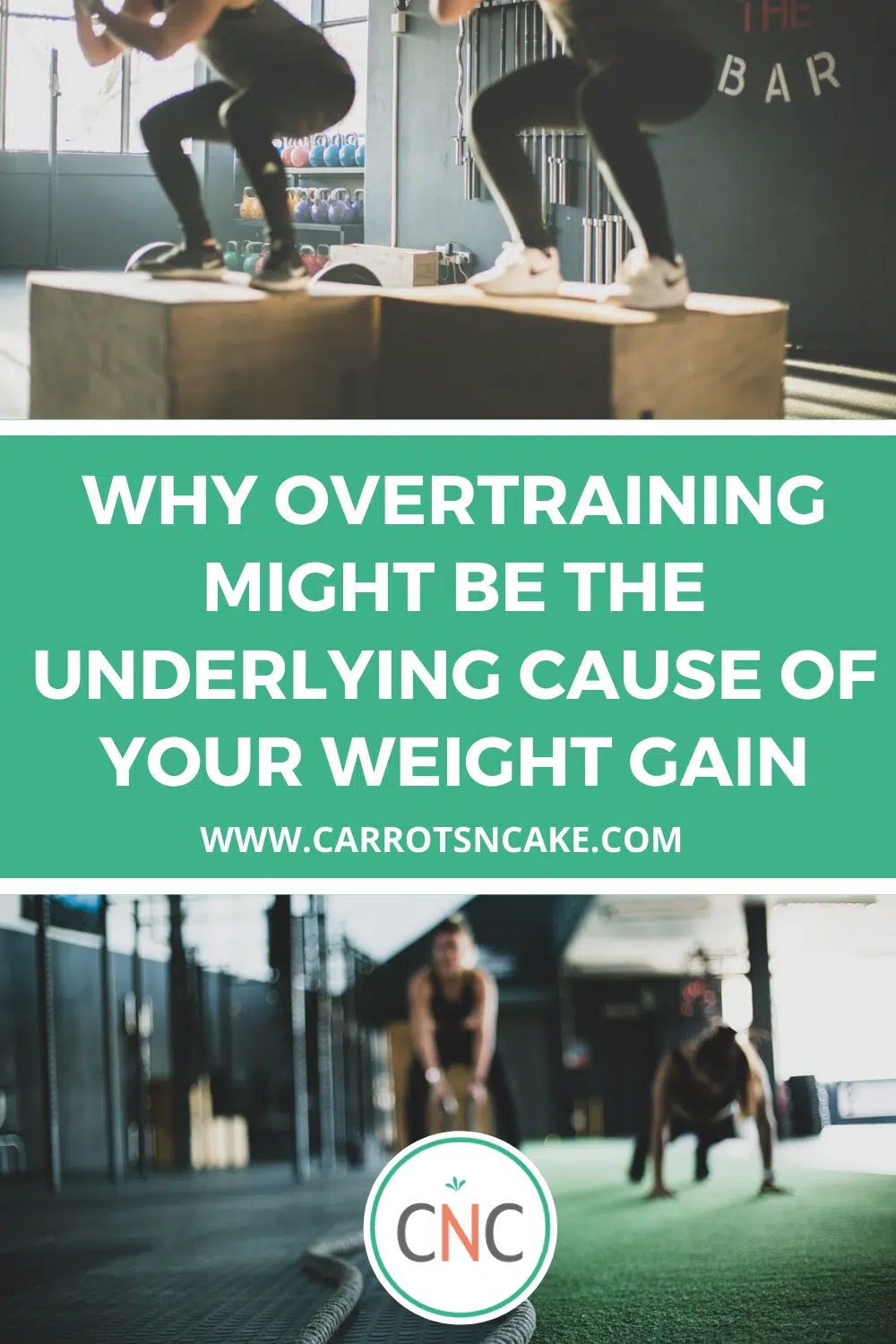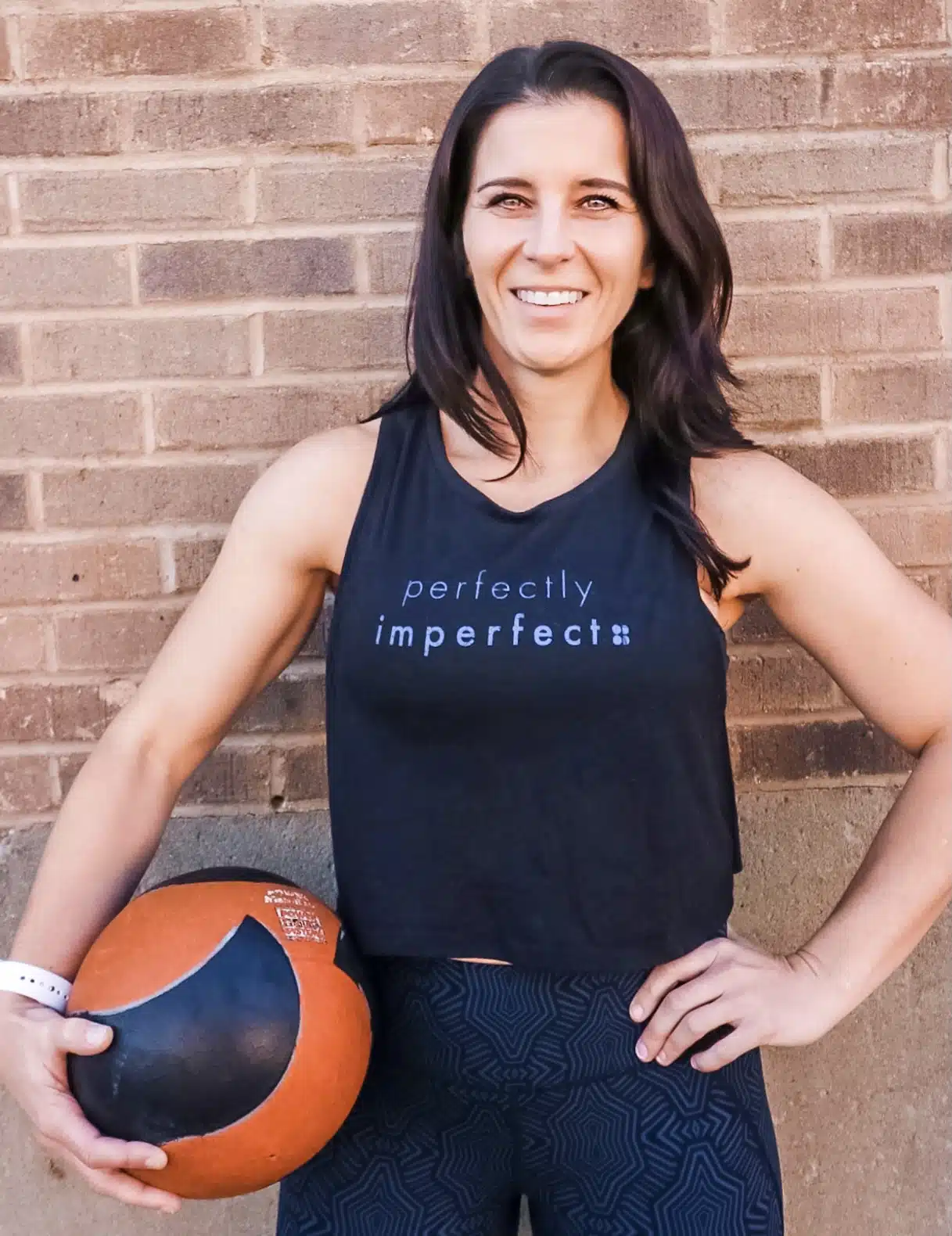Did you know that many women are overtraining and don’t even know it? Maybe you’re one of them! Overtraining can cause many health issues, including weight gain…probably the exact opposite of a regular exerciser expects. Let’s explore.
You: Overtraining
In science-y terms, overtraining syndrome is an imbalance between training and recovery. What that means is that there is too much exercise (for you) at too high of an intensity (for you) without enough recovery time (for you). I say ‘for you’ because one of the leading reasons women (and men) fall into the trap of overtraining is comparison. Just because your friend works out all day, every day doesn’t mean you should too!
Anyone can experience overtraining syndrome. An unexpected surge in duration, intensity, or frequency of movement can impact the body in surprising ways. Everyday people are highly prone to overtraining syndrome because of comparison or aggressive goal setting (i.e. training for a marathon, wanting to lose 10 pounds).
Overtraining and Weight Gain
Overtraining syndrome-related weight gain can come from reduced metabolism due to hormonal imbalances or it can come as a byproduct of your emotional state. Yes, really. Depression, anxiety, stress, and fatigue can all cause a person to overeat. Macros be darned, I’m eating that cookie! One may choose to indulge in comfort foods as a means to cope with excess stress or anxiety, see an increase on the scale, run to the gym to ‘remedy’ this, and thus, a cycle of overtraining is created.
When your hormones are out of wack and cortisol is high (from too much exercise, lack of sleep or plain ol’ stress), the body gets pissed off and responds by increasing blood sugar and insulin and lowering metabolism, which cause weight gain, especially around the midsection. Additionally, overtraining can cause something known as HPA Axis Dysfunction. Basically, this is when the increased stress due to overtraining (and other lifestyle actors) causes a severe miscommunication between the hypothalamus, pituitary gland, and adrenal glands, which causes all kinds of negative physical effects – everything from fatigue and insomnia to gut issues and weight gain.
How to recover from overtraining syndrome
Overtraining is not a badge of honor. Being depressed, irritable, stressed, overly hungry, or fatigued is not normal. If you’re feeling any of these symptoms, make adjustments immediately, before symptoms worsen. Here’s how to do that.
Assess
Take a hard look at your workout routine. Is it long or intense? Are you allowing your body to recover? Are you exercising and then performing a physically- or mentally-demanding job? Take an inventory and commit to making adjustments.
Rest
Sounds obvious, but if you’ve already spiraled pretty far down the rabbit-hole of overtraining, slam on the brakes now and give your body a few days of rest. Working out 6 or 7 days of week might be too much. Hell, 4 or 5 days might be too much if your training is intense.
Reassess
Incorporate adjustments that ensure that you don’t go back into overtraining mode. Consider reducing intensity, duration, or frequency of exercise. Replace your daily 5K run with a yoga session or a foundational strength-based routine.
Realign
Make adjustments to your nutrition, work-life balance, sleep pattern, and stress factors. While overtraining syndrome is a direct result of exercise, these additional life-related issues impact the body and its susceptibility to overtraining syndrome. Don’t disregard how your lifestyle affects your training. It’s a HUGE piece of the puzzle!
Overcoming Overtraining Syndrome
There is life after overtraining. When you commit to dropping the “all or nothing” mantra and adopting balance, you will win. Not only will your body feel better, but with the right nutrition and exercise regimen, it will look better too.
My prescription for an ideal exercise program is one that is based on strength-training fundamentals, which is also great for healthy hormones! Lifting heavy (for you) weights builds the essential muscle you need to improve your physique, boost your metabolism, and protect your skeletal system. Shorter, more efficient workouts allow the body the recovery time it needs to keep you in the game longer.
One week from today (April 7th), my 6-week total body strength training solution for building muscle and burning fat, StrongMadeSimple, is on sale. This dumbbells-only training program includes 24 full-length workouts, all 30-40 minutes in length, and designed to increase strength, definition, and lean lines without pushing you to overtrain. This comprehensive 4-days-a-week program is totally do-able for women who want to look like they actually work out, without spending hours exercising.
StrongMadeSimple was designed to get you the results you deserve without sacrificing your health. And because it requires minimal equipment and space, it’s perfect for working out at home.
StrongMadeSimple is only on sale for a limited time, so be sure to mark your calendar for next TUESDAY (4/7) to get it for yourself. In the meantime, be sure to sign up for the waitlist to get the latest updates (and discounts)!












